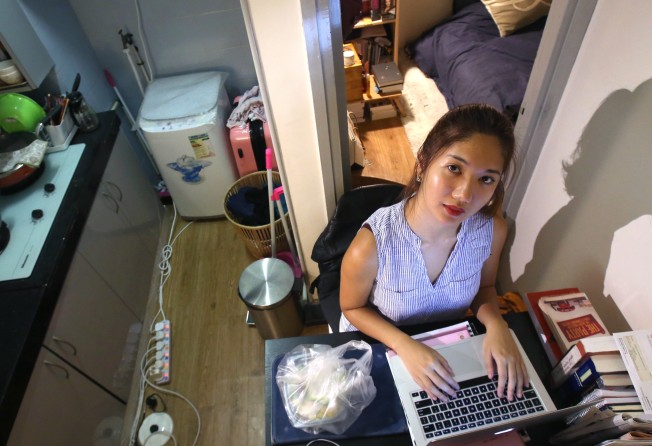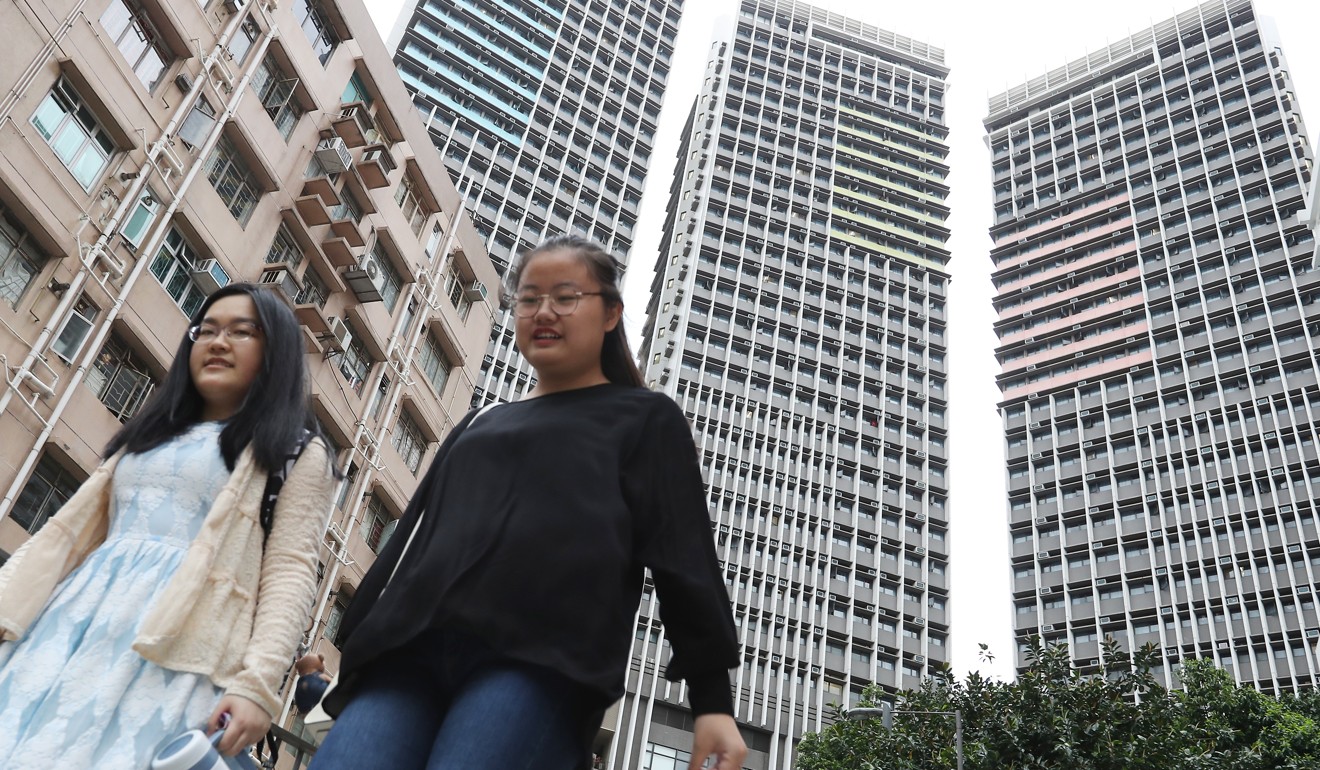
Non-local students in subdivided flats highlight Hong Kong’s university hostel shortage
Will Carrie Lam’s HK$12 billion building fund for campus accommodation succeed in luring more international students?

When Sarah Wong Un-kuan, a student from Macau, was accepted into a university in Hong Kong, she did not expect to be denied a place in a dormitory on campus and having to spend her sophomore year living in a 70 sq ft subdivided flat.
Wong, 22, was among the 10 top scorers in a matriculation test and came to the city three years ago to pursue a bachelor’s degree in journalism at the University of Hong Kong in Pok Fu Lam.
She was looking forward to a vibrant student life at the 106-year-old institution, part of which was the experience of living in a hall of residence on campus, taking part in inter-hall competitions and pulling all-nighters with hostel mates.
But it turned out that all the places in HKU’s 13 dormitories had been filled and she was given accommodation in a private flat on Pokfield Road rented by the university. She paid a standard student rate of HK$1,200 a month.
Wong was told she could only live in the off-campus home for one year. She then applied for a place in residential halls for her sophomore year, only to be told at the eleventh hour that her application had been unsuccessful.
“I panicked and was desperate for a place to stay in Hong Kong,” she said.
“It was already the last week of August, very close to the start of the new school year. They just rejected me without telling me why.”

With limited options, she signed a contract with a landlord within three days of the rejection by the university, and rented a 70 sq ft subdivided flat on Whitty Street in Shek Tong Tsui, for HK$4,800 a month.
“I never imagined I would be left without a dormitory place. I’ve always believed non-local students should have some priority since we have [no other accommodation in the city],” Wong said, adding that she had seen a handful of international students in the same situation.
In her maiden policy address on Wednesday, Chief Executive Carrie Lam Cheng Yuet-ngor unveiled a HK$12 billion hostel development fund to subsidise 75 per cent of the construction costs of new university hostels.

Six universities are currently planning to build 10 new hostels in total, providing 9,380 places.
A HKU spokeswoman said the construction project of a 17-storey residential hall housing 1,228 students in Wong Chuk Hang was being planned. Prefabricated structures would be used and each student would have a living space of up to 75 sq ft.
Lam said insufficient hostel facilities would reduce incentives for non-local students to study in Hong Kong, impeding the government’s objective of creating more internationalised campuses.
According to a Legislative Council paper, in the academic year of 2014-15, only Chinese University and the Education University of Hong Kong had successfully housed all non-local students who applied for hostels.
The most serious shortage in that period was recorded at HKU, where only 44 per cent of non-local students and 47 per cent of local students received a hostel place. This was followed by Baptist University, where 48 per cent of non-local students and 55 per cent of local students secured such accommodation.
Renting a private flat makes it so much more expensive to study here
Wong, now in her final year, moved out of the subdivided flat after one year and has jointly rented another place in Sai Ying Pun with a schoolmate, paying a monthly rent of about HK$6,500 each. The school provides a monthly housing allowance of HK$2,600 each for non-local students.
“It’s a big financial burden on my family. They have to pay HK$135,000 in tuition fees a year. Renting a private flat makes it so much more expensive to study here, something I hadn’t expected,” she said.
Tuition for non-local students at HKU has now gone up to HK$161,000 a year.
She said she hoped that the new hostels, built with the government funding, would have places allocated according to student needs, unlike the current system based on a formula that computes needs and “merit”.
An HKU spokeswoman said “merit” referred to a selection criteria based on whether the applicant would fit into the “unique culture” of the hostels, as well as his or her willingness to take part in student activities.
Wong said: “Unless residential halls change their selection criteria, the new hostel funding will not be of much help.”